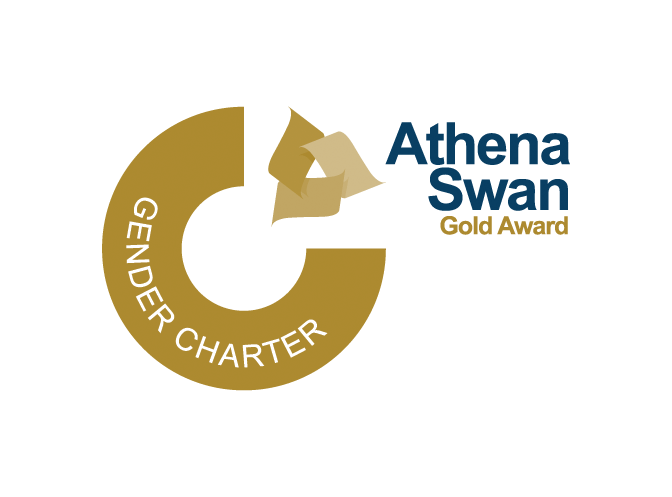Teaching Resources
Guest lecture on ‘An example of introducing Equality, Diversity and Inclusion teaching into an undergraduate Biology curriculum’
Dr Michelle Welsh, University of Glasgow, describes the approach adopted by staff and students to embed EDI into Year 3 and Year 4 anatomy modules, and considers how this could
Racism in Biology
Prof Kevin Laland has produced a lecture on Racism in Biology. This has been widely viewed, and was noted in Fola Ikpehai’s blog about race and ethnicity in higher education as part of UK Race Equality Week.
Decolonising the Biology Curriculum
Biology undergraduate students have produced a guide to staff on decolonising the biology curriculum. This work originated as part of a Summer Teams Enterprise Project (STEP) led by Mari Coulibaly, coached by Salma Ali and Jurin Katayama, and supervised by Prof Kevin Laland. Presented at staff council, 2021, this is available to all.
Decolonising the curriculum spans several EDI inclusion concerns. We have developed a downloadable checklist for module organisers to get started.
The following books are available in the Biology Teaching Office to help ensure work from a diverse range of scientists is being showcased:

Women in science: 50 fearless pioneers who changed the world
Women in Science highlights the contributions of fifty notable women to the fields of science, technology, engineering, and mathematics (STEM) from the ancient to the modern world.

Black Women in Science: A Black History Book for Kids
Throughout history, Black women have blazed trails across the fields of science, technology, engineering, and mathematics. Black Women in Science brings something special to black history books for kids, celebrating incredible Black women in STEM who have used their brains, bravery, and ambition to beat the odds. Black Women in Science stands out amongst other Black history books for kids―featuring 15 powerful stories of fearless female scientists that advanced their STEM fields and fought to build a legacy. Through the triumphs of these amazing women, you’ll find remarkable role models.

Great Scientists
DK Eyewitness Great Scientists is an exciting and informative guide to the fascinating lives of the world’s most famous thinkers, philosophers, inventors, innovators and pioneers. Stunning photographs offer a unique “eyewitness” view of the ideas and innovations that have changed the way we live today. Your child will discover all about Benjamin Franklin’s electrical charges, Albert Einstein’s theory of relativity and the many others whose discoveries have shaped our world. Eyewitness Great Scientists also includes a giant fold-out wall chart full of facts, perfect for bedrooms or classrooms.

Black Scientists & Inventors in the UK: Millenniums of Inventions & Innovations Book 5
Is the first comprehensive study of the black (African) contribution in science and technology in particular and other contributions in general to Britain (UK). It’s an epic story that starts in Africa, the cradle of civilization and later moves directly to Britain (and also to Britain via the Caribbean diaspora). Williams and Amalemba uncovers one of the world’s best-kept historical secrets, that Africans were inventing and building civilizations across the British isles from as early as 8000 BCE, and they continue to do so to this present day.
There are also some good resources available online, e.g.,
- Black British Naturalists, The Niche, British Ecological Society
- Most influential women in British science history, The Royal Society
- A history of black scientists, American Society for Biochemistry and Molecular Biology
University Resources
The university has developed resources for inclusive and anti-colonial practice (formerly known as the inclusion hub) – an online, self-service resource to assist colleagues in adopting inclusive and anti-colonial pedagogical practices. Policies, practice examples, case studies (collated over the course of the inclusive curriculum audit from Schools and Units) training, and guidance regarding various aspects of inclusive and anti-colonial practice in Higher Education have been compiled
Undergraduate tutorials
We have included Equality, Diversity and Inclusion material into the tutorials we provide for second and third year students.
In spring 2017, we focused on the issue of bias – both that of the students themselves and the bias they may face during their careers. We encouraged students to undertake one of the Harvard Implicit Social Attitudes tests. We then discussed gender bias in job advertisements, the issues of language used, and gender differences in assessment of application criteria.
In spring 2018, we focused on the issue of disabilities – and how consideration of disabilities was required for the planning of events. The students were asked to design a public engagement event, and the importance of taking into account the various disabilities of attendees, that may or may not be physically evident, for the event was discussed.
In spring 2019, we focused on sample selection and bias. This included consideration of sample diversity (which included gender, ethnicity, and age) in biological research including clinical trials and stem cell research, as well as gendered innovations.
